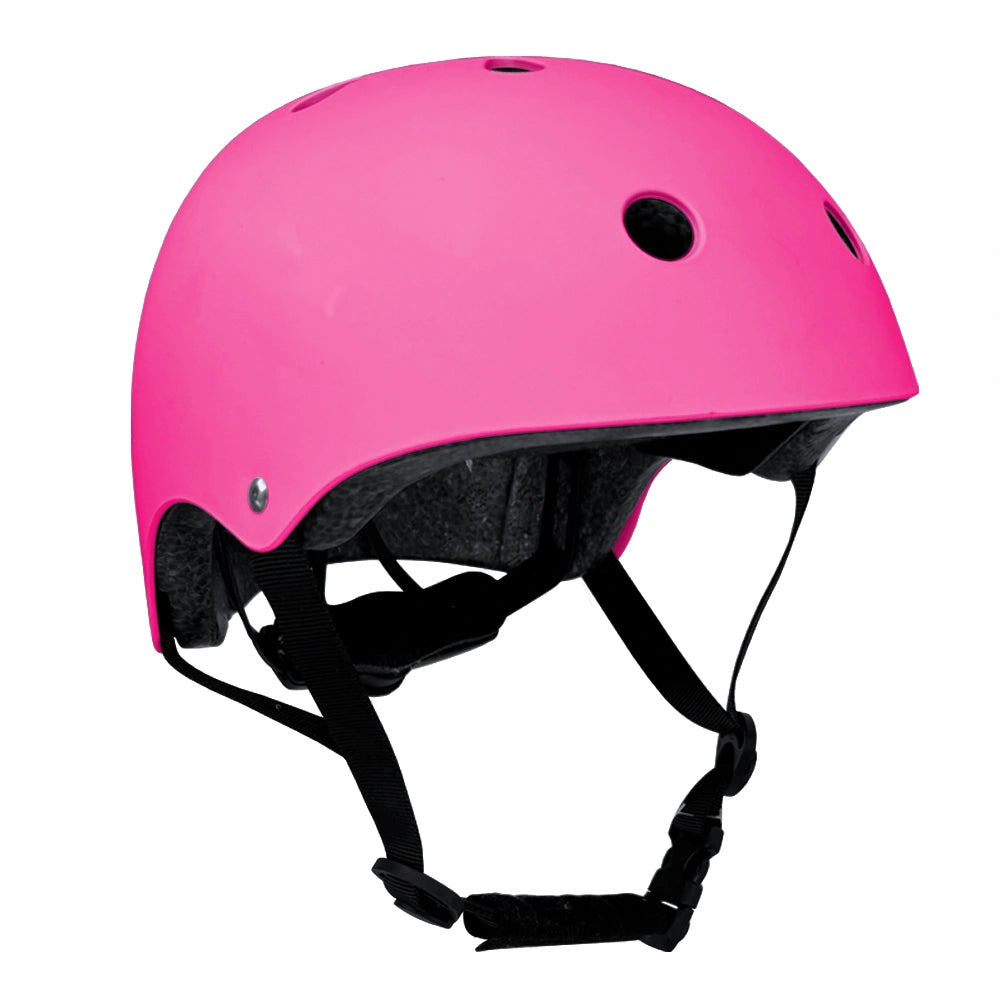In today's digital age, where children are often glued to screens, finding ways to encourage outdoor activities is crucial for their physical and psychological well-being. Evidence shows that children who take part in physical activities have more confidence, higher self-esteem, less anxiety and stress and better social skills.
One such physical activity gaining popularity is scooting. While it may seem like just a fun pastime, scooting offers many benefits. In this 3Style blog, we’ll discuss the psychological benefits of your children taking part in physical activities, particularly scooting.
- Stress Reduction:
Scooting provides an excellent outlet for stress relief. The simple act of propelling oneself forward on a scooter engages both the body and the mind, diverting attention away from worries. The rhythmic motion of scooting can be meditative, promoting a sense of calm and relaxation.
- Boost in Confidence:
Studies show mastering new skills boosts confidence levels, and scooting is no exception. As children learn to balance, steer, and manoeuvre their scooters, they experience a sense of accomplishment with each milestone reached. This newfound confidence extends beyond scooting, positively impacting various aspects of their lives, including social interactions and academic pursuits.
- Enhanced Mood:
Physical activity, such as scooting, stimulates the release of endorphins, often referred to as the body's "feel-good" chemicals. These neurotransmitters promote a positive mood and help alleviate symptoms of anxiety and depression. Regular scooting sessions can serve as a natural mood enhancer, leaving children feeling happier and more content.
- Connection with Nature:
Scooting encourages children to explore the great outdoors, fostering a deeper connection with nature. Being immersed in natural surroundings has been shown to reduce stress, anxiety, and attention fatigue. Additionally, exposure to sunlight during outdoor activities promotes the production of vitamin D, which plays a vital role in regulating mood.
- Social Interaction:
Scooting often becomes a social activity when children gather with friends or family members to ride together. These shared experiences promote bonding, communication, and teamwork. Through collaborative play, children learn important social skills such as cooperation, negotiation, and empathy, all of which are essential for healthy psychological development.
Some examples of scooter activities children could do together are:
- Scooter Races: Set up a designated course and organise friendly scooter races. Children can take turns competing against each other, encouraging healthy competition, and boosting their motivation to improve their scooting skills.
- Scooter Obstacle Course: Create an obstacle course using cones, hoops, and other props. Children can navigate through the course on their scooters, testing their agility and problem-solving abilities while having fun.
- Scooter Tag: Adapt the classic game of tag by incorporating scooters. One child is "it" and tries to tag the others by touching their scooter. When tagged, a player must freeze until another player unfreezes them by touching their scooter.
- Scooter Picnic: Pack some snacks and drinks and head to a nearby park or outdoor area with paved paths. Children can enjoy a scooter ride to the picnic spot, where they can relax, socialise, and refuel before scooting back home.
- Scooter Parade: Organise a scooter parade in the neighbourhood or local community. Children can decorate their scooters with streamers, balloons, and flags, then ride together in a procession, showcasing their creativity and spreading joy to onlookers.
- Mindfulness and Presence:
Scooting requires children to be fully present in the moment, focusing their attention on the task at hand. This mindfulness practice promotes mental clarity and reduces rumination about past events or worries about the future. By immersing themselves in the present moment, children cultivate a greater sense of gratitude and appreciation for the world around them.
- Cognitive Stimulation:
Scooting involves coordination, balance, and decision-making, all of which stimulate cognitive function. As children navigate their environment while scooting, they must assess risks, make quick judgments, and adapt to changing circumstances. These mental challenges help strengthen neural connections and improve cognitive abilities such as problem-solving and spatial awareness.
In conclusion, the benefits of kids scooting extend far beyond physical exercise. By engaging in this enjoyable activity, children can experience improvements in their psychological well-being, including stress reduction, increased confidence, enhanced mood, and greater social connection. As parents and caregivers, encouraging children to incorporate scooting into their routine can contribute to their overall happiness and resilience in the face of life's challenges. So, let's grab those scooters, hit the pavement, and scoot towards a brighter, healthier future!
Are you ready for your child to make the most out of life? Shop our 3StyleScooter collection now and embark on an adventure-filled journey towards well-being and joy!
Have a question? Get in contact now!















